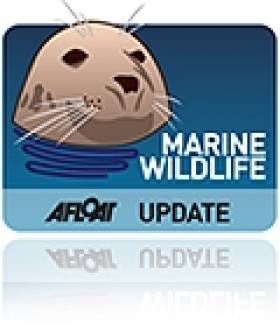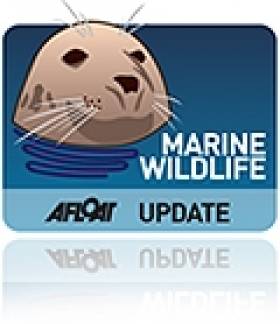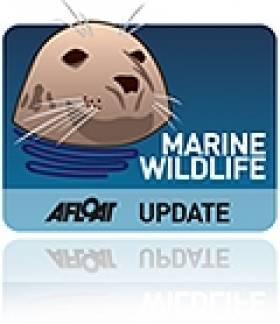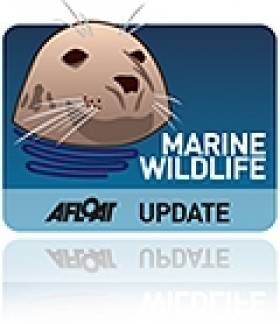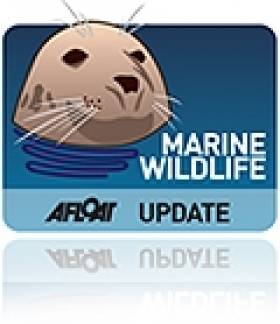Displaying items by tag: pod
First Humpback Whale Sighting of 2012 Is a Newcomer
#MARINE WILDLIFE - Ireland's first humpback whale of the year has been spotted off the Wexford coast.
The sighting was made yesterday by whale-watchers among a pod of fin whales some three miles south of Hook Head, according to TheJournal.ie.
The Irish Whale and Dolphin Group (IWDG) has also confirmed that the humpback is a new sighting in Irish waters, and has been designated the reference HBIRL18.
RTÉ News has images of the humpback whale HERE.
Fin Whale 'Feeding Frenzy' Off Hook Head
#MARINE WILDLIFE - A "feeding frenzy" involving a pod of fin whales was spotted off Hook Head in Co Wexford last week, The Irish Times reports.
And according to Andrew Malcolm of the Irish Whale and Dolphin Group (IWDG), two of the whales were in the same location almost exactly a year ago.
Malcolm, who was with a group on board the Rebecca C, used photographs of the whale's dorsal fins to compare records for the confirmation.
The pod of six fin whales was seen feeding some 3km southeast of Hook Head, attracted by the herring spawning grounds in the area.
More than 30 other cetaceans, including common dolphins, porpoises and a minke whale, were sighted on the trip.
The Irish Times has more on the story HERE.
Bottlenose Dolphins Living On Ireland's East Coast
The Irish Whale and Dolphin Group (IWDG) has said that evidence suggests a pod of three bottlenose dolphins is living on the east coast of Ireland.
According to RTÉ News, the organisation as validated close to 200 sightings of the dolphins - one of whom was spotted off Co Down in October 2010 - along the Dublin and Wicklow coastline in the last year.
The IWDG's Pádraig Whooley says that further analysis of theor movements show that they rarely travel north beyond Dalkey Island or south of Wicklow town, indicating a core range of 21 miles (33km).
"Remarkably, they seem to split their time evenly between their Dublin and Wicklow hotspots, thus making them extremely easy to locate, observe and photograph," he adds.
"In fact... the best way to find them other than checking this site, is probably to jump on a DART train in Dun Laoghaire bound for Greystones (or visa versa), making sure to look out the correct window."
While well known for being "boisterous, interactive and gregarious", bottlenose dolphins are also "indescriminate killers of porpoises and other dolphin species, with well-documented cases of infanticide".
Neither are they to be taken lightly by swimmers, with "a case load in Ireland of attacks on swimmers leading to serious injury, and at least one overseas case of [a bottlenose] killing a swimmer.
"It's nice to be able to boast of an apex predator lurking so close to the capital," says Whooley.
RTÉ News has images of the dolphins in action off the south Dublin coastline HERE.
Bottlenose Dolphins Make New Home in Donegal
The Irish Independent reports that some 100 bottlenose dolphins have made a new home off the Donegal coast in the past week.
The pod of bottlenoses - a rare treat in Irish waters compared to the near ubiquitous common dolphin - has been spoted by boaters and wildlife enthusiasts in the inner Donegal Bay, between Rossnowlagh Beach and Doorin Head.
Patrick Lane of the Irish Whale and Dolphin Group said the bottlenose often swims closer to the shore than its more common counterparts, making it much easier for people on shore to catch a glimpse.
The Irish Independent has more on the story, including photos, HERE.
Killer Whales Spotted off Kerry Coast
The Irish Whale and Dolphin Group (IWDG) spotted killer whales off the coast of county Kerry during an offshore survey last weekend. The killer whales crossed within two metres of the bow of the research vessel, others swam just beneath the surface keeping a parallel course with the surveyors.
The sighting of an adult pod is a rare encounter in Irish waters. 2010 has been a good year for killer whale sightings here with 14 validated records to date.
IWDG surveyors were able to photograph the whales and have sent the findings to expert researchers in the University of Aberdeen. It is understood these are new animals, not previously catalogued during the past few years of surveying killer whales in the North East Atlantic.
More on the sightings HERE.


























